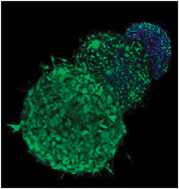The ability of cancer cells to become resistant to chemotherapeutic agents is a major challenge for the treatment of malignant tumors. Several strategies have emerged to attempt to inhibit chemoresistance, but the fact remains that resistance is a problem for every effective anticancer drug. The first part of this review will focus on the mechanisms of chemoresistance. It is important to understand the environmental cues, transport limitations and the cellular signaling pathways associated with chemoresistance before we can hope to effectively combat it. The second part of this review focuses on the work that needs to be done moving forward. Specifically, this section focuses on the necessity of translational research and interdisciplinary directives. It is critical that the expertise of oncologists, biologists, and engineers be brought together to attempt to tackle the problem. This discussion is from an engineering perspective, as the dialogue between engineers and other cancer researchers is the most challenging due to non-overlapping background knowledge. Chemoresistance is a complex and devastating process, meaning that we urgently need sophisticated methods to study the process of how cells become resistant.

You have access to this article
 Please wait while we load your content...
Something went wrong. Try again?
Please wait while we load your content...
Something went wrong. Try again?


 Please wait while we load your content...
Please wait while we load your content...